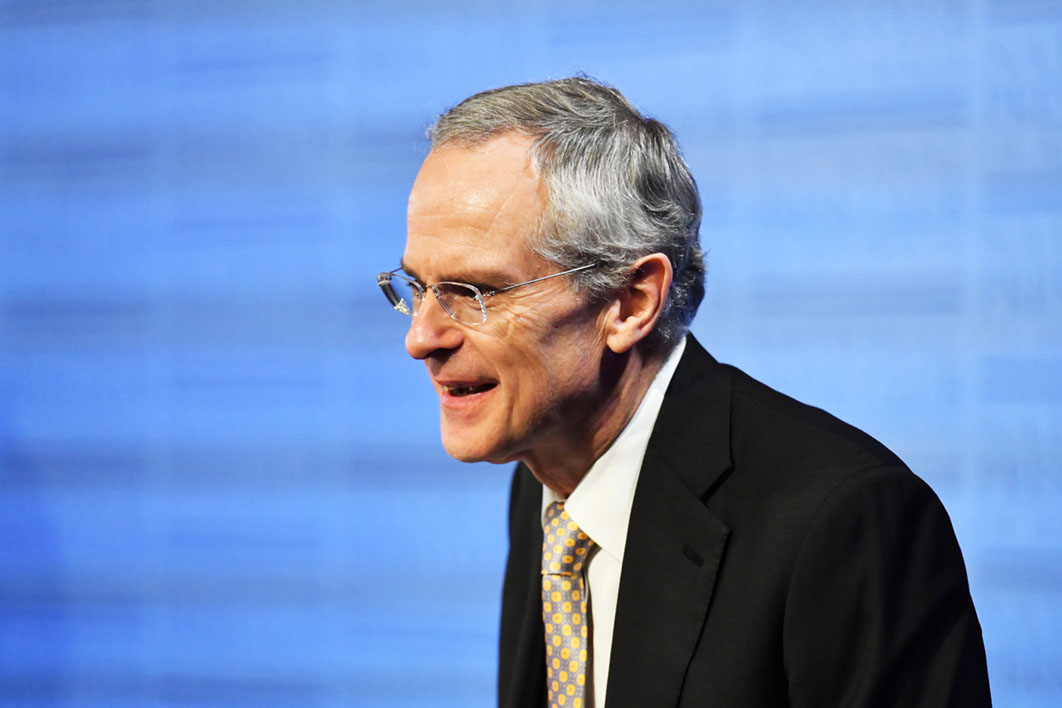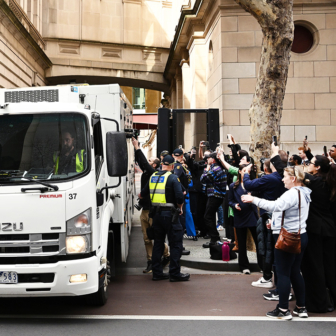Rod Sims is concerned that Facebook isn’t dealing with media companies “in the right spirit” under the news media bargaining code. The chair of the Australian Competition and Consumer Commission was responding to an emerging campaign by at least twenty-one small, independent publishers that have not been able to strike deals with Google, Facebook or both.
Sims says Google has done more deals than Facebook. “Google has reached deals with the Conversation, SBS and other organisations that Facebook has not done deals with. Google is still negotiating and finalising deals with more news media companies and seems to be approaching this exercise in the right spirit. We are concerned that Facebook does not currently seem to take the same approach.”
Facebook’s dealings with the smaller independents will form part of a review of the code due to start in March next year, says Sims. The review “can examine closely the performance of all parties and whether the government’s expectations have been met.”
The campaign by the independents will highlight the murky mix of money, politics and strong-arm tactics that characterised the news media bargaining code’s first year of operation. The code, which came into force in March this year, is world-first legislation under competition law to force Google and Facebook to reach agreements with news media companies for featuring their content. It aims to protect the viability of public interest journalism and redress an imbalance in market power between the digital platforms and media companies.
At the last moment — and after Facebook made its displeasure clear by blocking Australians’ access to news content on its platform — the government changed the legislation. The tech giants would now be given a chance to strike their own deals with accredited news media organisations before the treasurer Josh Frydenberg considered compelling them to do so using the act’s “designation” provision. The treasurer also indicated that he was unlikely to use that power because Google and Facebook were already striking deals with media companies. That left the legislation technically inactive, with the threat of designation — a “nuclear option,” in the words of one government insider — acting as a big stick.
When the legislation passed, communications minister Paul Fletcher said that he expected deals to be struck with small publishers as well as large ones, but concern has persisted that the smaller players, who lack political as well as commercial power, will miss out.
Australian Property Journal editor Nelson Yap is one of the organisers of the new independent publishers’ campaign. He says that some small publishers have had their emails and phone calls ignored by Google and Facebook, and others have had their requests to negotiate rejected without reason. He believes that Google and Facebook are “doing just enough deals,” mostly with larger and politically influential publishers, to “take the issue off the front pages.”
The university-backed outlet the Conversation has petitioned parliament after successfully striking a deal with Google but being rejected by Facebook. “Without providing a reason,” editor and executive director Misha Ketchell wrote recently, “Facebook declined to negotiate with the Conversation and SBS, and many other quality media companies eligible under the Code.”
The growing coalition of small and independent publishers plans to seek ACCC permission to collectively bargain with Google and Facebook. They also plan to petition for both platforms to be designated. Designation would force them not only to bargain in good faith with any registered news media businesses wanting to negotiate, but also to share information about how content is carried on their platforms and give notice of changes to algorithms that determine how content is distributed.
The members of the emerging coalition have shared experience of getting the brush-off from Facebook, says Yap, often with communications being completely ignored. Google has cut some deals but rejected or failed to respond to other requests to negotiate.
Yap says he had early communications with Google — “They basically acknowledged my existence” — but since then he has heard nothing. Facebook’s response to approaches has been to urge him — and at least five other small publishers I’ve contacted — to drop any attempt to bargain and instead apply for a grant through the Facebook-funded Australian News Fund, which is administered by the prestigious Walkley Foundation.
But the independent publishers were dismayed to discover that one of the conditions of applying for the grant is that they “not have a content licensing agreement in place with Facebook.” They have understandably read that as meaning that by taking a grant they effectively end any chance of cutting a deal, at least for the life of the grant.
Facebook says that a publisher could receive a grant, and later cut a deal. It just couldn’t cut a deal before applying for a grant.
Yap criticises the Walkley Foundation for lending its name to such a scheme and says that in any case the chance to apply for a grant is no substitute for a commercial deal. “It’s a competitive grant scheme, so there is no guarantee you will get it.”
The chief executive of the Walkley Foundation, Louisa Graham, says that the foundation was not “privy to Facebook’s commercial negotiations” and agreed to manage the grants program “because it represents a substantive investment into the Australian media industry at a time when smaller, regional and public interest–focused news organisations and journalists are facing increasing financial strain.”
Applications, which opened this month, would be independently assessed in a competitive process, she says, and “the response has been enthusiastic.”
The publishers in the emerging coalition include Alt Media, which publishes the Sydney community newspaper City Hub and the LGBTI-focused Star Observer, Croakey Health Media, Naracoorte News, National Indigenous Times, Probono Australia, Hills to Hawkesbury Community News, Western Sydney Publishing Group, QNews, the Tasmanian Inquirer, Renew Economy, the Clarence Valley Independent and (full disclosure) Inside Story. Other publications, including several from the ethnic press, are considering joining.
Google said in a statement that it had reached agreements with more than one hundred Australian publishers, and provided me with boosterish endorsements from Independent Australia, Women’s Agenda, Australian Associated Press and SBS. Independent Australia — a trenchantly left-wing outlet — described Google as “an absolute pleasure to deal with.”
Facebook’s head of news partnerships for Australia and New Zealand, Andrew Hunter, says he strongly rejected any suggestion the company doesn’t “support or work with” smaller independent publishers. As well as “commercial arrangements with a diverse range of publishers,” Facebook provides grants and funded programs — including the Accelerator program, which funds innovation — directly aimed at small and regional publishers.
A recent deal with the 170-member Country Press Association was aimed at “the digital transformation of regional newsrooms.” Through the combination of these investments, says Hunter, “Facebook is supporting the newsrooms producing the vast majority of civic and public interest journalism across the nation.”
More broadly, Rod Sims says that the news media bargaining code has been “extremely successful,” leading to a “huge number of commercial deals with a wide range of media companies.”
There’s no doubt that is true. While nothing in the code ensures that money flowing from the digital platforms is spent on journalism rather than boosting profit, at least some of the money is clearly being used to hire journalists. The Guardian Australia, for example, has greatly expanded its staff in recent months, with more jobs advertised. Other big publishers have also been hiring, thanks to the flow of new money.
But others have criticised the code as a bad precedent — effectively bullying Google and Facebook into paying up, rather than reflecting any real calculation of commercial value. Media analyst Hal Crawford wrote recently in PressGazette that “by ‘playing dirty’ to squeeze out some income in the short term, the Australian government and media industry has stored up trouble in the long term.”
The deals done under the code are confidential, making it impossible to understand how news content is being valued. In Crawford’s words, “this is a game without rules being played out of sight.” A PressGazette investigation found that Australian publishers are getting a better deal from Google than overseas media are, almost certainly because of political pressure rather than a robust calculation of commercial value.
While they dance around saying it outright, Facebook’s argument is basically that it believes grants and other funded programs are a better way of supporting smaller players than commercial deals.
A commercial deal has obligations on both sides: performance benchmarks that a News Corp or a Nine Media might be able to fulfil, but an Independent Australia or an Inside Story might not. Such deals are said to be very complex, informed by metrics on reach, engagement and whether there is premium or paywalled content not otherwise available on Facebook. So Facebook prefers to make grants and fund programs for smaller players.
We might favourably interpret this as Facebook being an enlightened corporate citizen. Or, more cynically, we might see it as enlightened public relations. After all, surely it is possible to cut a simple, viable commercial deal if you really want to.
If Facebook gives a grant or funds a program, the power remains in Facebook’s hands. It is corporate charity. Whereas the idea of a bargain is that it is made between dignified equals — the whole rationale of the news media bargaining code being to even the playing field.
But it is all very complicated. Given the lack of data on how the market is valuing content on digital platforms, it is likely that if the campaign by the independents succeeds it will be more about politics than because of a robust commercial calculation.
The Conversation gives away its content for free to lift the profile of academic research. How, then, can it claim recompense from Google and Facebook, but not from the ABC or the Age or the other outlets that republish its articles?
Other members of the new independent coalition don’t always pay their contributors. How can they then seek to put a commercial value on its use by Google and Facebook? (At the very least, any flow of funds should go straight to the writers.)
Keep in mind that next March’s review of the news media bargaining code is likely to coincide with the federal election, and Facebook has the power to block Australians’ access to news content, as it did earlier this year. That would be a disaster. Or then again, in the light of recent revelations about Facebook’s conduct, perhaps a blessing.
Nobody thinks the current treasurer will take the “nuclear option” and designate the digital platforms with an election looming, and that raises the question of whether the publishers who do have deals with Google and Facebook will be able to cut good deals when the current ones expire. The answer may well depend on the treasurer of the day, and whether he or she has the stomach for a fight. •
The publication of this article was supported by a grant from the Judith Neilson Institute for Journalism and Ideas.





